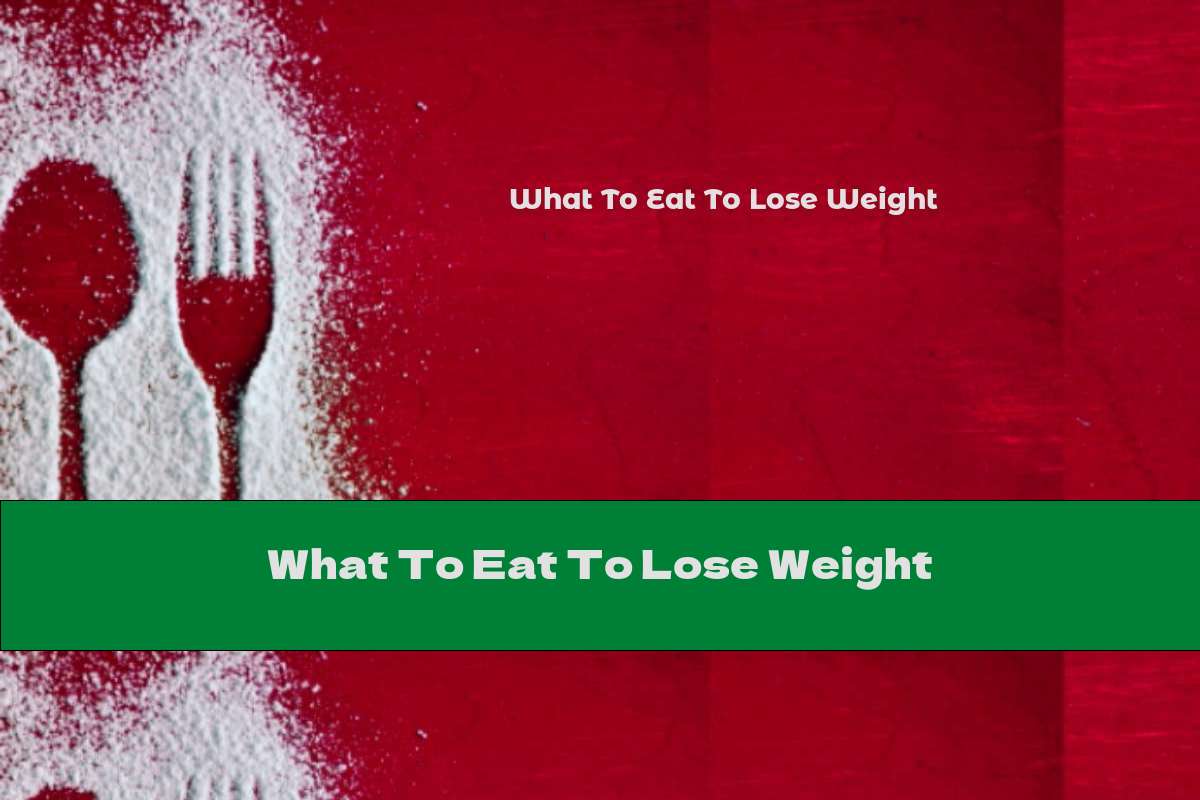What To Eat To Lose Weight
 Author: Alexander Bruni
Time for reading: ~3
minutes
Last Updated:
February 16, 2026
Author: Alexander Bruni
Time for reading: ~3
minutes
Last Updated:
February 16, 2026

A successful fight against excess weight is unthinkable without proper nutrition. Learn what to eat to lose weight.
A successful fight against excess weight is unthinkable without proper nutrition. Learn what to eat to lose weight.
Fewer caloriesProper nutrition is a rather subjective concept. Someone talks about the harm of meat, someone talks about its benefits. Some nutritionists advise not to eat after 6 hours, while others say that it is harmful. After listening to different opinions from competent specialists, a person simply gets lost in guesswork: what to eat to lose weight?
To begin with, let's define the task. If we want to lose a few kilograms, it is obvious that the caloric content of our diet should be less than usual. You have to conduct a thorough, and most importantly, an honest analysis of what you eat.
Importance of vitamins and mineralsHaving cut your diet by 400-800 kcal, keep in mind that you will be deficient in a number of the most important vitamins and trace elements. It is undesirable to allow this, especially if you are going to sit on such a diet for a long time. Therefore, in some cases, vitamin and mineral complexes will not hurt. When choosing one or another remedy, it is best to consult a nutritionist.
Carbohydrates are an essential element of the menu for weight loss. Try to minimize the consumption of fast-digesting carbohydrates. These are sweets, sugar, carbonated sweet drinks, packaged juices, etc. A person weighing 70-80 kg needs to consume 2 portions of "slow" carbohydrates. Such carbohydrates include: oatmeal, wholemeal flour, buckwheat, millet, whole grain bread, baked potatoes. The peculiarity of the carbohydrates included in these products is that they take a long time to digest. This will allow you to keep the feeling of fullness longer, while not significantly increasing the level of glucose in the blood, which is important.
In order not to feel hungry in the evening, "slow" carbohydrates should be eaten for breakfast and lunch.
Proteins are the key to weight loss. On the one hand, protein food is low-calorie. In addition, regular consumption of protein products increases the level of metabolism by as much as 30%, which will help you lose weight faster. And if you do physical exercises, then protein food will allow you to quickly build muscle mass, which will also significantly increase the fat burning process.
Lean meat, chicken, turkey, fish, eggs (including the yolk) and dairy products can be considered good sources of protein.
Fats and fiberDo not give up fats in any case. Healthy fats are an important component of a balanced diet. For a person weighing 70-80 kg, the daily norm can be considered 2 tablespoons of vegetable fat or 30-40 g of nuts. Polyunsaturated fatty acids, which have a beneficial effect on the work of the heart, blood vessels and brain, are considered useful fats. Sources of polyunsaturated fatty acids are fatty marine fish, olive oil, and flax seeds.
Food fibers (fiber), the sources of which are vegetables and fruits, are necessary for the normal functioning of the digestive tract. The menu should include at least 300-450 g of vegetables and 300-400 g of unsweetened fruits.
The most important thing is portionsIf you want to lose weight, the most important thing is to watch your portions. This especially applies to cereals and bread - the most high-calorie food in your diet. The size of one portion of porridge is about 1 fistful. Bread and loaves should be consumed no more than 40-50 g per day.
What to give upAs already mentioned above, when choosing food products, you need to pay attention to their calorie content. In addition, food should be as natural as possible, without chemical additives, dyes, flavors, flavor enhancers and preservatives.
Objectively harmful food (especially for those who want to lose weight) can be considered fast food, fried foods (especially fried potatoes), fast food, flour products, sweets, carbonated drinks and sauces (mayonnaise, ketchup and others).
Most of the products listed above not only harm the figure, but also worsen the functioning of the liver, kidneys and intestines.
Related Articles
- The Role of Water in Nutrition: Importance, Hydration, and Weight Management
- The Ultimate Guide to Hormone Type 5 Diet for Weight Loss and Health
- The Role of Hormones in Nutrition: Impact on Diet, Weight Management, and Health
- The Truth About E477 in Food: What You Need to Know
- The Nutritional Value of Potato Chips: What You Need to Know